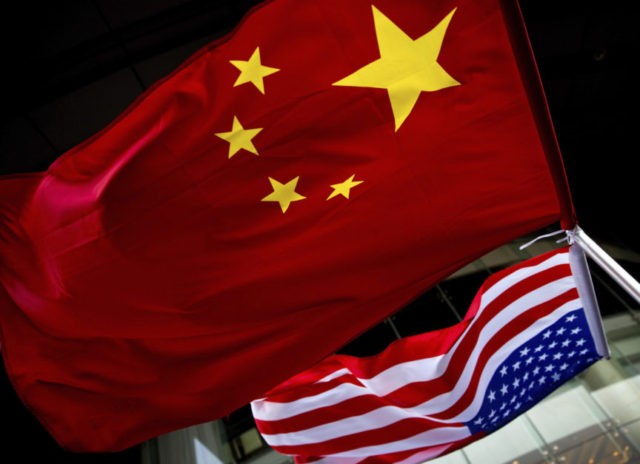China’s state-run Xinhua news service vented Beijing’s mounting anger at U.S. allegations of espionage and election interference by claiming on Monday that it is the U.S., not China, that menaces the Internet as a “cyber predator.”
Xinhua raged against Vice President Mike Pence’s October 5 speech to the Hudson Institute, which is certainly turning out to be one of the most consequential foreign policy orations of recent times. Admirers of Pence’s speech compare it to Winston Churchill’s warning about the descent of the Iron Curtain at the beginning of the Cold War. The Chinese denounce it as “groundless” slander.
Xinhua’s Monday editorial claimed the U.S. is projecting its own cyber-sins onto innocent, blameless China:
The United States has kept cooking up such charges against China over recent years, regardless of the fact that it is an unrivaled cyber superpower, home to Internet founders, most of the core infrastructure, and major suppliers of key technologies.
More ironically, it has the world’s largest cyber intelligence organization and first institutionalized cyber force, and it houses what is widely believed to be the strongest stronghold of hackers.
The 9-year-old Cyber Command is one of the 10 Unified Combatant Commands of the U.S. Department of Defense, armed with cyber offensive strategies and operating more than 130 cyber mission teams.
Yet just like in the real world, the superpower likes playing the victim in cyberspace. The United States, a cyber predator that has a notorious record of violating other countries’ interests and rights, keeps claiming that it is prey to cyber attacks launched by other countries.
And it has a rather thick skin for it. Edward Snowden’s eye-popping revelations about U.S. bugging project PRISM, which targeted leaders of even American allies, WikiLeaks’ exposure of the Central Intelligence Agency’s capabilities to hack into smart devices worldwide, and the havoc wreaked by the WannaCry ransomware, which exploited leaked U.S. hacking tools, have all failed to shame Washington into stopping its hypocritical trick.
Xinhua also repeated an accusation popular with Chinese officials that America is whipping up paranoia about vulnerable Chinese hardware to “hoodwink” third parties into “blocking Chinese competitors and saving the market for U.S. companies.” The standard party line that China hates hackers more than anyone in the world and dearly wishes to cooperate with international cybersecurity efforts is duly repeated.
Curiously, Xinhua did not attack the highest-profile recent claim of Chinese mischief: the claim by Bloomberg News that a major computer manufacturer constructed hundreds of servers using Chinese circuit boards with hidden spy chips. Business Insider on Saturday noted that doubts about Bloomberg’s bombshell report have been piling up, including criticism from both government officials and private-sector security consultants. If China wants to complain it has been accused unfairly, this would seem like a story worth mentioning. Perhaps they passed it over because U.S. government officials have not made, or supported, the hardware hack allegations.
A Chinese intelligence officer named Yanjun Xu was arrested in Belgium and extradited to the United States last week to face espionage charges. Xu’s trial promises to expose an unprecedented level of detail about Chinese information theft operations. There are also concerns Xu’s arrest could prompt a surge of retaliatory activity from Chinese hacker units.

COMMENTS
Please let us know if you're having issues with commenting.